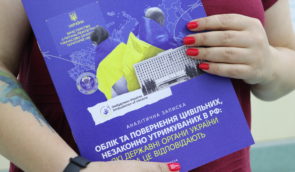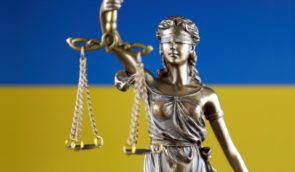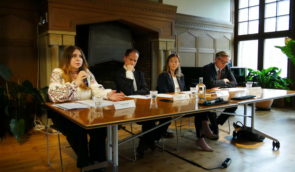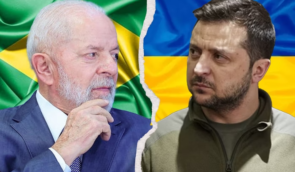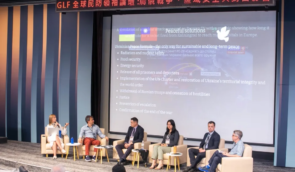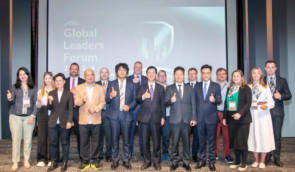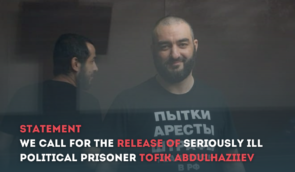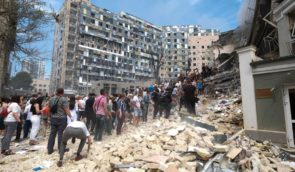Working group that will take care of civilian hostages detained by Russia was presented in Kyiv
On April 16, a working group created at the Coordination Headquarters for the Treatment of Prisoners of War was presented in Kyiv, which will take care of the issues of Ukrainian civilians illegally deprived of their personal freedom by Russia. This group will include representatives of the Office of the Ombudsman, the Coordinating Staff, the Office of the Prosecutor General, the SSU, representatives of public organisations, etc.
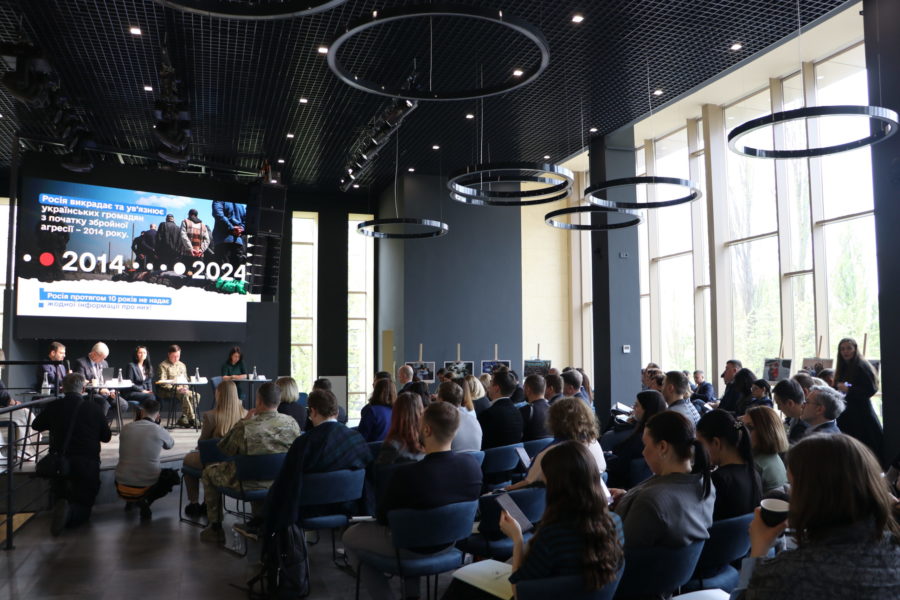
This became known during the joint event of the Office of the Ombudsman and Human Rights Centre ZMINA “Civilians in illegal detention by Russia: joint steps of the authorities and civil society for their release”. The event was attended by representatives of the government and non-governmental organisations that take care of the issue of civilians illegally imprisoned by Russia.
According to the organisers of the event, this working group should work together to support and release civilian Ukrainians held by Russia.
Dmytro Lubinets, Ukrainian Parliament Commissioner for Human Rights, said that so far Ukraine has managed to free 147 civilian hostages who were held hostage by Russia. According to him, 37,000 people, including military personnel, are currently known to be missing.
“The list of civilian hostages includes public and church figures, journalists, civil servants, self-government representatives, police representatives, ATO participants, and there are even three employees of the OSCE”, Lubinets says.
He believes that the abduction of representatives of international organisations and citizens of other states is a show of contempt for international law and a challenge to the world legal order. Lubinets adds that currently Ukraine has no mechanisms for bringing Russia to justice.
“Russia, in particular, according to our observation, does not release civilians, because they can automatically be witnesses of the atrocities of the Russian Federation on the temporarily occupied territory of Ukraine”.
According to Lubinets, Ukraine cannot fully rely on international partners in the context of the release of civilian hostages, so the state must do everything itself to return citizens. This working group should become one of the possible tools for releasing from captivity, it will be headed by the representative of the Ombudsman in the system of security and defence sector bodies Oleksandr Kononenko.
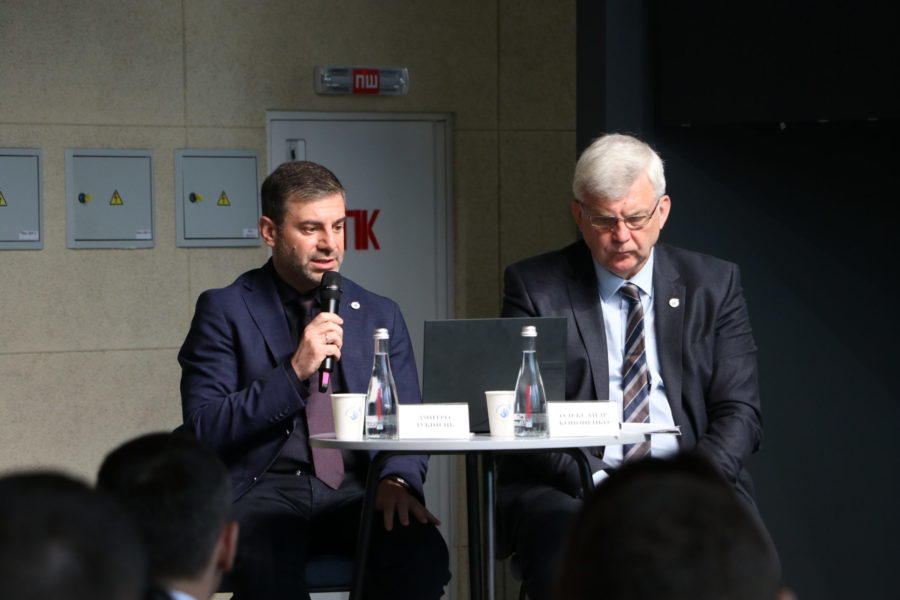 Dmytro Lubinets and Oleksandr Kononenko
Dmytro Lubinets and Oleksandr KononenkoThe representative of the Main Directorate of Intelligence of the Ministry of Defense of Ukraine Andrii Yusov said that there are currently 868 abducted civilians, the data of which was confirmed by the International Committee of the Red Cross. Although, according to Yusov, there are clearly more of them:
“We understand that the number is many times higher. But the very fact that the ICRC defines and recognises the stay of civilians in places of deprivation of liberty is already recognition of the fact of war crimes, a direct violation of the Geneva Conventions by the aggressor state”.
Yusov also added that more than 14,000 civilians are known to be in captivity, according to human rights organisations and Ukrainian partners. Also, the state has information about approximately 2,000 victims of enforced disappearances who are over 70 years old, Yusov says.
Oleksandr Kononenko commented that the initiation of the working group was a reaction to the demands of public organisations regarding the creation of a single service window for civilian prisoners and their families. He also added that representatives of the working group are open to active cooperation with the public.
“Creating a joint strategy for the release of civilians illegally detained by the Russian Federation is a critically important task that requires a comprehensive approach and cooperation between various structures and bodies”, Kononenko said.
Nataliia Yashchuk, a project management coordinator of the Center for Civil Liberties, noted that Russia has been abducting Ukrainian civilians since 2014, and since then Ukraine has had a number of unresolved challenges that have increased thousands of times since 2022. Therefore, says Yashchuk, Ukrainians in captivity must live to be released, and the state must facilitate this as much as possible.
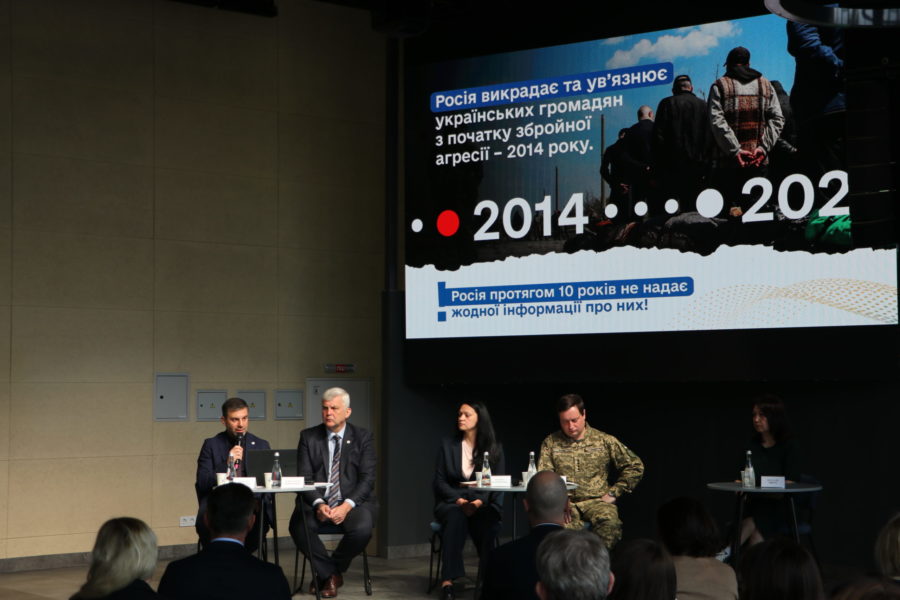
According to Tetiana Katrychenko, an executive director of the MIHR , Ukraine needed such solutions a long time ago:
“It is very important that tens of thousands of families will know that there is finally a single window where they can turn to with problems and questions about information that has been of interest to them for ten years. The problem has existed since 2014. The state was not able to react quickly either in 2014 or in 2022. But finally the work has started”.
Previously, a number of human rights organisations, including ZMINA, presented an analytical note on how Ukraine helps civilian hostages and their relatives.
Cover photo: Censor.NET

